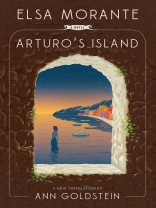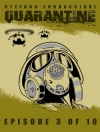“Astonishing for the quality of the writing . . . the complexity of the invented world, the wide- ranging view of the human condition.”— Elena Ferrante
Elsa Morante’s novels were once considered the greatest of Italy’s postwar generation. Here, Ann Goldstein’s “deft translation” (Madeline Schwartz, New York Review of Books) of Arturo’s Island heralds a “second life” for the beloved author, finally garnering Morante “the new readers she deserves” (Lily Tuck, Wall Street Journal). Imbued with a spectral grace, the novel follows the adolescent Arturo through his days on the isolated Neapolitan island of Procida, where—his mother long deceased, his father often absent, and a dog as his sole companion—he roams the countryside or reads in his family’s lonely, dilapidated mansion. This quiet, meandering boyhood existence is existentially upended when his father brings home a beautiful sixteen- year- old bride, Nunziatella. A novel of thwarted desires, written with “the power of malediction” (Dwight Garner, New York Times), Arturo’s Island reemerges to take its rightful place in the world literary canon.
عن المؤلف
Ann Goldstein, the editor of The Complete Works of Primo Levi and the award-winning translator of Elena Ferrante’s novels, is a former editor at The New Yorker.












